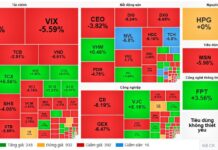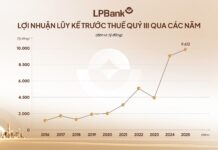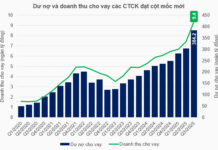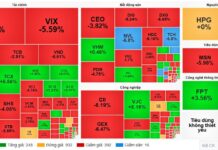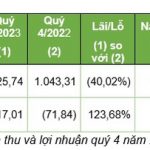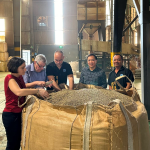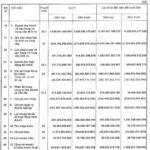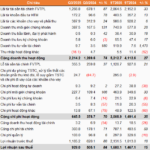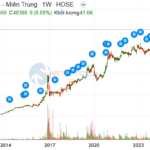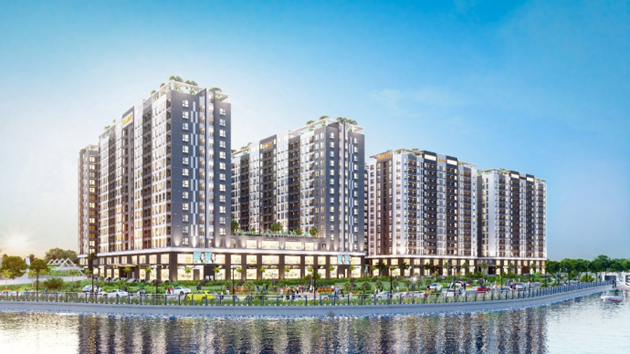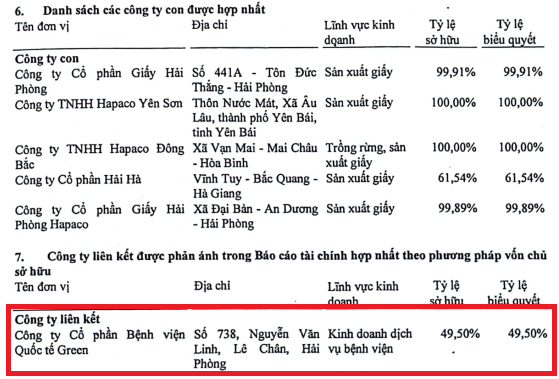The Q2-2024 business survey results from HUBA indicate that 57.1% of businesses are operating stably, a rise of over 6% from Q1-2024. However, there has been a significant jump in the number of businesses experiencing a decrease in revenue, now standing at 30.4%. Inventory levels have climbed to 34%, and account balances with outstanding debts have increased to 42%.
These are indicators of a deteriorating market, with businesses facing greater challenges in selling their goods and a prevalent issue of lingering debt.
Notably, the labor index reveals that a considerable number of businesses are planning to reduce their workforce by 30%. Although this is a difficult decision that will impact their future development, the harsh market conditions have forced some business owners to resort to such negative measures.
Overall, as the broader market is in decline, most businesses are still struggling.
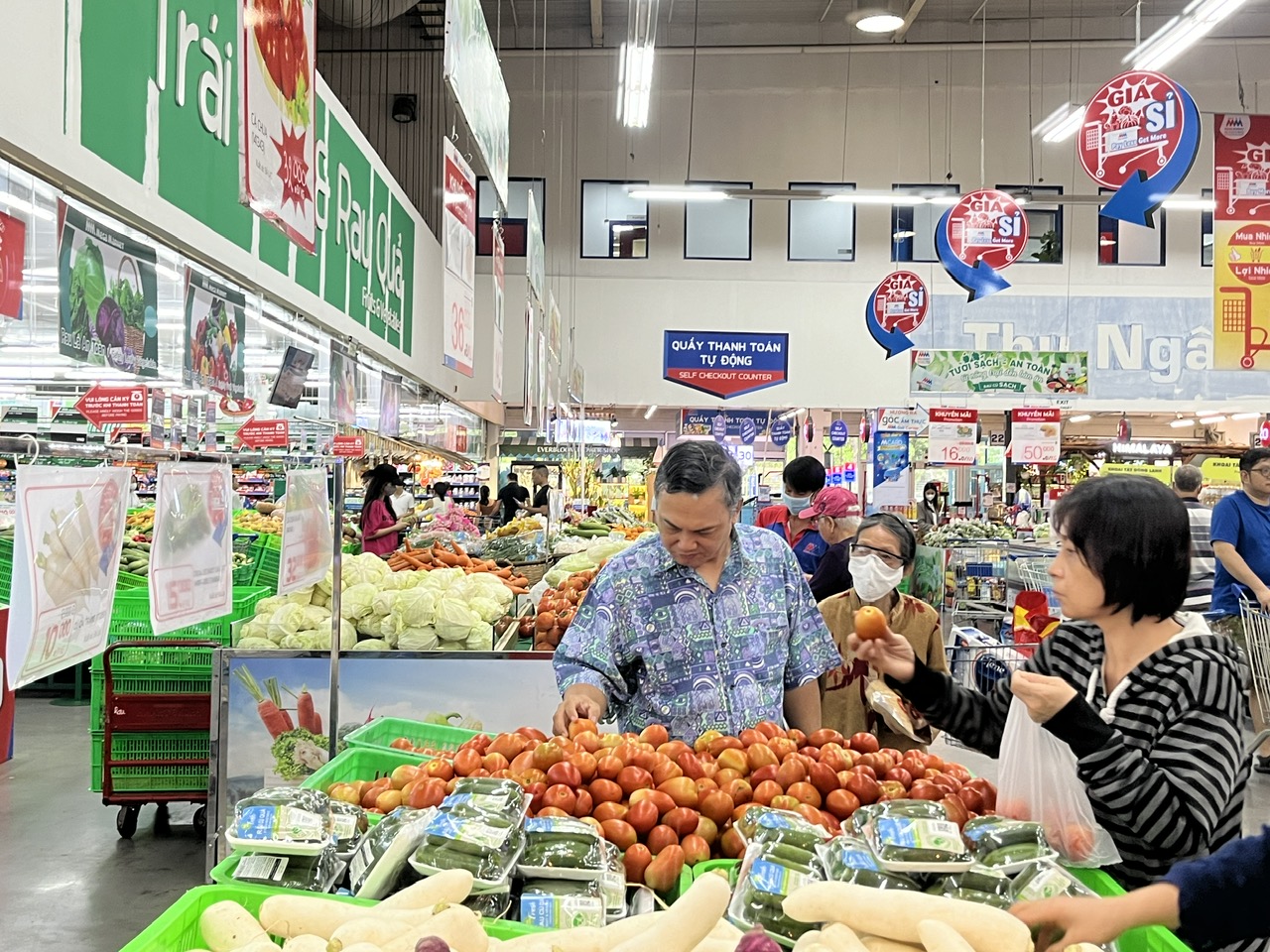
Ho Chi Minh City consumers are continuing to cut back on spending
For medium-sized and large enterprises, common challenges include lingering debt issues, high levels of capital occupation, and hidden risks. Additionally, there are challenges with bond maturities in the latter half of 2024, and strict mortgage regulations hinder access to bank loans.
Small and micro-businesses, on the other hand, are facing cash depletion and pressure from lenders while struggling to collect business debts.
The pressure of these difficulties, coupled with issues related to economic institutions, administrative procedures, and intense competition from low-cost consumer goods from China, has resulted in a much higher rate of businesses quietly exiting the market than what is reflected in official statistics.
“In business operations, capital is always the first requirement for enterprises. However, due to the cumulative effects of a series of recent challenges, most businesses are now facing a depletion of cash flow. Enterprises lack the funds to repay previous debt principal amounts and supplement working capital for subsequent operations,” the HUBA report emphasized.
Therefore, according to HUBA, supporting interest rates does not address the root cause of the problem, which is the need for additional cash flow. The business community proposes that the government provide comprehensive support by addressing market difficulties, such as the depletion of investment capital and the decline in consumer demand.
Additionally, beyond traditional financial sources like bank credit and corporate bonds, the state should develop and attract alternative financial products, such as real estate investment funds, housing savings funds, and securitized real estate, and ensure their effective operation. This will provide businesses with a broader range of capital sources.
Regarding the commercial banking system, HUBA proposes that the State Bank of Vietnam consider a comprehensive and long-term debt moratorium policy for debts maturing in 2024. This would alleviate the pressure on businesses to repay their debts and minimize borrowing costs. Furthermore, it is essential to apply supportive policies universally to all loans before 2023, as well as consumer and personal loans, to comprehensively address the issue of stagnant debt in society today.
According to HUBA, 64% of Ho Chi Minh City businesses are facing challenges due to declining consumer demand, 50% are struggling due to a lack of new orders, 29% are impacted by rising raw material costs, and 16% are facing capital shortages.
Given this situation, 63% of businesses propose that the city boost investment and consumption stimulation measures. Additionally, 63% of enterprises suggest reducing various taxes, fees, social insurance, and union fees, while 45% request credit support and reduced interest rates. Moreover, 46% of businesses urge the swift resolution of reasonable proposals from enterprises.
Export of agricultural, forestry, and aquatic products increases by over 79%
According to the Ministry of Agriculture and Rural Development, in January 2024, the total export turnover of agriculture, forestry, and fisheries reached $5.14 billion, a 79.2% increase compared to the same period last year; while the import value was $3.72 billion. Therefore, the agriculture, forestry, and fisheries sector achieved a trade surplus of over $1.4 billion in the first month of 2024, a more than 4.6-fold increase compared to the same period last year.
‘King of spenders’ Phan Minh Thong warns of ‘shocking’ changes in the US market from a $500,000 pho bowl perspective.
“In the US, a bowl of pho costs about $15-18, plus a $20 tip (around 500,000 Vietnamese dong). Compared to Vietnam, where breakfast in Saigon or Hanoi costs around 50,000 dong per meal, and a plate of banh cuon with all the toppings in Hai Phong costs 20,000 dong,” Mr. Thong recounted.

